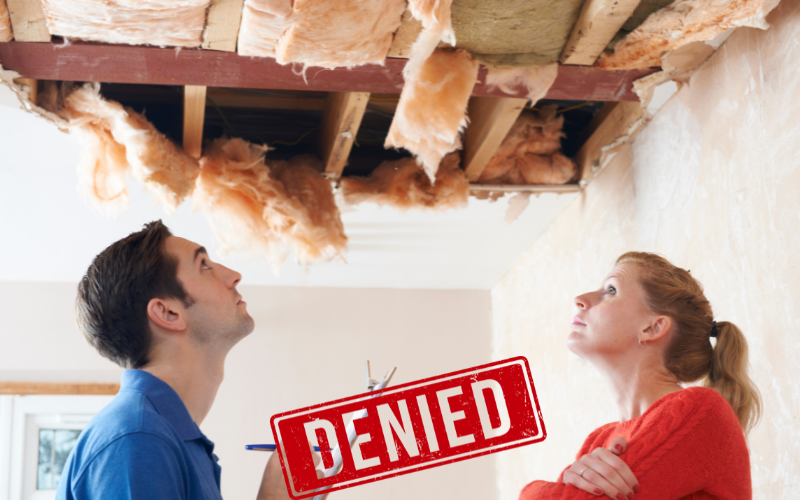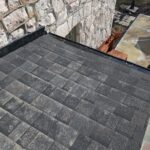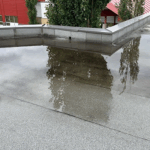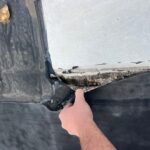Steps to Take if Your Roof Damage Insurance Claim is Denied
Roof damage can be a costly problem for homeowners, especially in regions like Asheville, NC, where weather events such as hailstorms, heavy rain, and high winds are common.
While insurance often covers damage to roofs, insurance companies sometimes deny claims, leaving homeowners scrambling for solutions.
Understanding why an insurance claim is denied and the next steps to take can make a substantial difference in whether or not a homeowner ultimately receives compensation.

Why Insurance Claims for Roof Damage Get Denied
Before diving into the steps to take after a denial, it’s helpful to understand why some roof damage claims get rejected in the first place. Insurance companies deny claims for several common reasons:
| Reason for Denial | Description |
|---|---|
| Pre-existing Damage | Insurers may determine that damage existed before the policy was active. |
| Improper Maintenance | Claims can be denied if the damage is due to neglect, not a covered event. |
| Policy Exclusions | Policy Exclusions |
| Insufficient Documentation | Lack of evidence, such as photos or repair estimates, can lead to claim rejection. |
| Delayed Reporting | Waiting too long to file a claim may result in denial. |
Each of these reasons has specific requirements for appeal, and by recognizing these, homeowners can approach the claim denial more effectively.
Steps to Take if Your Roof Damage Insurance Claim is Denied
Step 1: Review the Denial Letter Carefully
When your insurance claim is denied, the first step is to carefully review the denial letter from your insurer. This letter provides the reasons for the denial, which can help you understand what evidence or information might be missing or what clauses in the policy were cited. In some cases, the denial could be due to simple clerical errors or misunderstanding of policy language.
Key Points to Look For:
Specific Exclusions or Clauses: Check if the damage type is explicitly excluded in your policy.
Required Documentation: Some claims are denied because of missing documentation, which may be easy to rectify.
Explanation of Denial: Review the language carefully; look out for terms like “pre-existing condition” or “neglect,” which may need further documentation to dispute.
Step 2: Gather Evidence of the Roof Damage
Insurance companies require comprehensive documentation to support any claim. If the initial claim was denied due to insufficient documentation, gather as much information as possible on the damage.
How to Collect Evidence:
Take Photos and Videos: Document the damage thoroughly, focusing on affected areas, and capture multiple angles for clarity.
Get a Professional Inspection: Hire a licensed roofer, preferably one who specializes in insurance claims, to conduct a thorough inspection and provide a detailed report.
Compile Weather Reports: In Asheville, where severe weather can cause sudden roof damage, weather reports can serve as evidence that the damage was due to a covered event, not neglect.
Having evidence that aligns with your policy’s coverage terms strengthens your case significantly.
Step 3: File an Appeal or Request a Reassessment
After collecting evidence, you can proceed with an appeal or request a reassessment of your insurance claim. Most insurance companies have a structured appeal process; check your policy or contact your insurer for specific details on how to proceed.
Tips for Filing an Appeal:
Be Prompt: Appeals usually have a deadline. Acting quickly ensures you meet any time limitations.
Submit Comprehensive Evidence: Include photos, inspection reports, and any new documents in the appeal packet.
Request a Reinspection: If possible, ask your insurer to send an adjuster to inspect the roof damage again, ideally in the presence of your roofing contractor.
Appeals that are submitted with detailed evidence of roof damage often have a higher chance of being approved.
Step 4: Consult a Roofing Contractor with Insurance Experience
For complex cases, it can be invaluable to work with a roofing contractor experienced in navigating insurance claims. Asheville roofing contractors, especially those with knowledge of local building codes and common weather patterns, can offer targeted guidance on making successful claims.
Benefits of Consulting a Roofing Contractor:
Detailed Damage Assessments: Contractors can provide specific repair estimates that align with insurance standards.
Negotiation with Adjusters: Experienced roofers can work directly with insurance adjusters to clarify the extent of damage and necessary repairs.
Insurance Claim Assistance: Roofers with insurance expertise often know what documentation insurers require and can help homeowners gather it effectively.
Professional support from local roofing contractors ensures you have the most accurate and compelling documentation possible to support your claim.
Step 5: Consider Mediation or Legal Action if Needed
If your appeal is denied, mediation or legal action may be the next steps. Mediation involves a neutral third party working to help both sides reach an agreement. This process is less adversarial and can sometimes result in a faster resolution than a lawsuit. However, if mediation fails, hiring an attorney with experience in insurance claims may be necessary.
When to Consider Legal Action:
Repeated Denials: If the insurer denies claims multiple times, it may indicate a need for legal assistance.
Significant Financial Impact: In cases of extensive roof damage, legal action may be warranted to recover substantial repair costs.
Evidence of Bad Faith: If there is evidence that the insurer acted in bad faith (e.g., unreasonably delayed response), legal recourse may be justified.
Statistics on Roof Damage and Insurance Claims
| Statistic | Data |
|---|---|
| Average Roof Replacement Cost in the U.S. | $7,500 - $10,000 |
| Percentage of Homeowners’ Claims Denied | 5% - 10% of all claims |
| Percentage of Home Damage Claims from Weather | 97% of claims involve weather-related damage |
| Average Time for Insurance Claim Resolution | 30-60 days, longer for appeals |
| Impact of Weather Events on Roof Claims | Claims increase by 20-40% after severe storms |
These figures underscore the importance of following up on denied claims, as the financial impact of unreimbursed roof repairs can be significant for homeowners.
FAQs Regarding Roofing Insurance Claim Denials
Begin by reviewing the denial letter to understand the reasons, then gather additional evidence, and consider filing an appeal.
Yes, most insurers allow an appeals process. Make sure to submit all required documents promptly.
This varies by insurer, but typically you have between 30 and 90 days.
Absolutely. A licensed roofing contractor can provide an independent inspection to support your claim.
This occurs when an insurer unreasonably delays or denies a valid claim, which may warrant legal action.
Yes, most policies cover weather-related damage, but specifics depend on your coverage terms.
Asheville experiences frequent hail and wind storms, which contribute significantly to roof damage claims.
They can provide evidence, negotiate with adjusters, and guide you through the appeals process.
Yes, new evidence can often strengthen your appeal and improve your chances of approval.
If your appeal is unsuccessful, you will need to cover the repair costs out-of-pocket, though some roofers offer financing options.
Roof Damage Insurance Claims
By understanding the steps to take when your roof damage insurance claim is denied, you can increase your chances of a successful outcome. Partnering with an experienced Asheville roofing company and ensuring you follow best practices in documentation can help protect your investment and secure the coverage you need.





